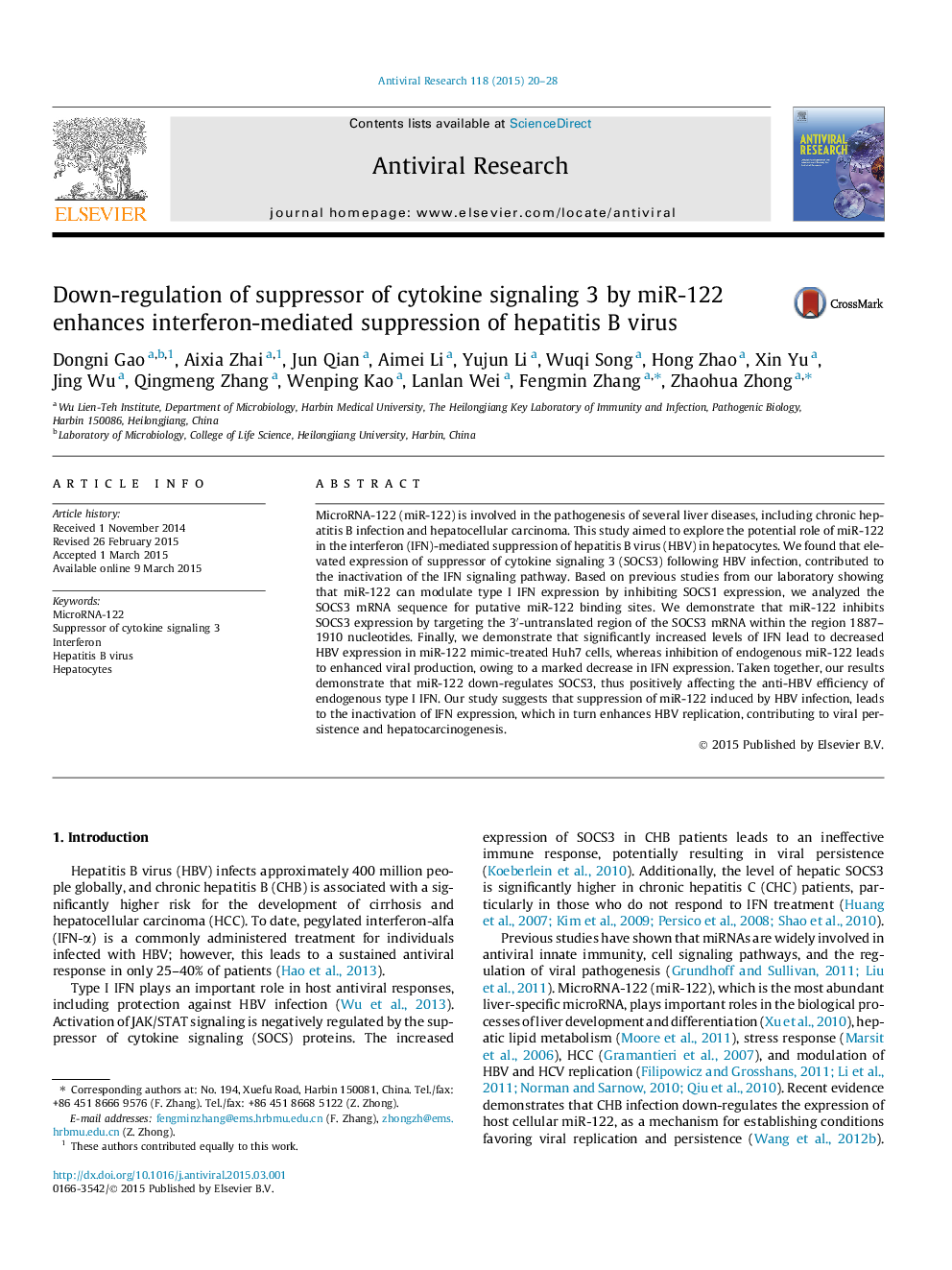| Article ID | Journal | Published Year | Pages | File Type |
|---|---|---|---|---|
| 2509819 | Antiviral Research | 2015 | 9 Pages |
•SOCS3 negatively regulated anti-HBV efficiency of type I interferon.•MiR-122 inhibited the expression of SOCS3.•MiR-122 suppressed HBV replication and expression through type I IFN signaling pathway.
MicroRNA-122 (miR-122) is involved in the pathogenesis of several liver diseases, including chronic hepatitis B infection and hepatocellular carcinoma. This study aimed to explore the potential role of miR-122 in the interferon (IFN)-mediated suppression of hepatitis B virus (HBV) in hepatocytes. We found that elevated expression of suppressor of cytokine signaling 3 (SOCS3) following HBV infection, contributed to the inactivation of the IFN signaling pathway. Based on previous studies from our laboratory showing that miR-122 can modulate type I IFN expression by inhibiting SOCS1 expression, we analyzed the SOCS3 mRNA sequence for putative miR-122 binding sites. We demonstrate that miR-122 inhibits SOCS3 expression by targeting the 3′-untranslated region of the SOCS3 mRNA within the region 1887–1910 nucleotides. Finally, we demonstrate that significantly increased levels of IFN lead to decreased HBV expression in miR-122 mimic-treated Huh7 cells, whereas inhibition of endogenous miR-122 leads to enhanced viral production, owing to a marked decrease in IFN expression. Taken together, our results demonstrate that miR-122 down-regulates SOCS3, thus positively affecting the anti-HBV efficiency of endogenous type I IFN. Our study suggests that suppression of miR-122 induced by HBV infection, leads to the inactivation of IFN expression, which in turn enhances HBV replication, contributing to viral persistence and hepatocarcinogenesis.
Graphical abstractFigure optionsDownload full-size imageDownload as PowerPoint slide
